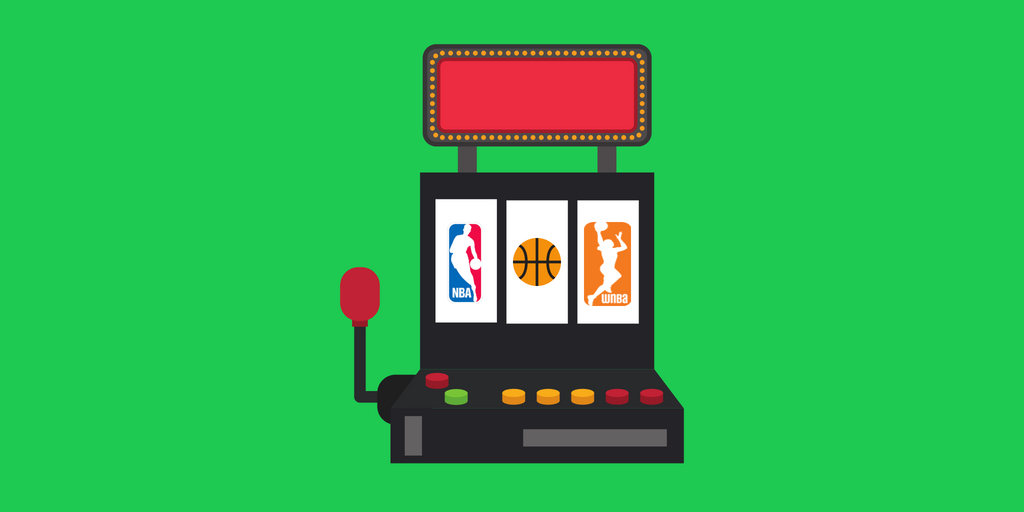The Art Of Betting On Sports
Bonus: Our great sports betting glossary. Every bettor has been a newcomer. And as a newcomer we have to learn everything about betting. As the betting business is a huge business around the world there is a huge number of terms you have to learn. So we decided to create a betting glossary with more than 130 terms for you so there will be. From Gladiators to Horse Racing. People think that sports betting is a modern concept, but, in fact, it dates back to over 2,000 years ago. Along with the Greeks and their legendary Olympics came the first record of betting on athletic competitions.This became increasingly popular and it spread to the Romans, who embraced the concept to the point of legalizing it and making it a part of their.
“Wait, why does this NFL team have a -235 next to its name? What’s with New England Patriots (-15) vs. Miami Dolphins (+15)? Help! HEEEELPPPP!”

If that sounds like you, we’re here to assist you. If you’ve stared at a board at a sportsbook or just seen spreads and moneylines on the Internet and been utterly confused, don’t worry. It’s not just you. Those numbers can be confounding.
But hopefully, once you’re done reading this, you’ll completely understand how they work. As you prepare to dive into the world of sports betting, here’s a breakdown of how the lines work, starting with …
Spreads
It would be really easy to bet on a game if you could put money on a heavy favorite to win.
That’s where point spreads come in. Let’s look at an example:
Philadelphia Eagles (-4.5)
New York Giants (+4.5)

In this case, you can bet on either two outcomes: you can put money on the Eagles to win the game by 4.5 points OR MORE, which makes them the favorites. Or you can bet that the Giants will either win or lose by LESS THAN 4.5 points. They’re the underdogs.
Now, sometimes the spread “moves” during the days leading up to the game. Perhaps the Eagles’ spread ends up being -3.5 (in which they must win by 3.5 points or more to give you a victory in your bet). Your bet all depends on whichever spread you bet on, whether it was when the Eagles were favored by 4.5 or 3.5 points.
If you ever see “PK” or “pick” next to a team, it means there’s no spread and you can bet on who will win, no matter what the score is.
Moneylines
Let’s take that same example above but use moneylines:
Philadelphia Eagles (-200)
New York Giants (+150)

The team with a minus symbol is the favorite, and the number is how much money you would need to bet to win $100. In this case, you would have to bet $200 on the Eagles in order to win an additional $100.
The Giants are the underdogs. If they’re +150, that means you could bet $100 to win $150.
Note that you can bet any amount you want, but those numbers are always calculated and posted the same way, either in how much money you would need to wager to win $100 or how much money you could win by wagering $100.
Odds
If you’re betting on something like the team who will win the Super Bowl in the future, you might see it look like this:
New England Patriots — 3/1
Baltimore Ravens — 5/1
Kansas City Chiefs — 8/1
If you were betting on the Patriots and their 3/1 odds, you would win $3 for every $1 you spend. So if you bet $50 on the Pats and they ended up winning the Super Bowl, you’d win $150 (plus your original wager) back.
Good luck!
Every few months the subject of sportsbook limits seems to pop up on Twitter and much debate usually follows. Having been in Las Vegas for the better part of 20 years, both as a bettor and a bookmaker, I feel I’m as qualified as anyone to offer my take on the matter.

Well-defined limits are a necessary part of the relationship between a bettor and a sportsbook. Limits should be established up front, before the first bet is ever placed.
How Most Sportsbooks Set Limits
I’d like to get this out of the way early on: management at any sportsbook has the right to offer any limits they deem appropriate in any way they see fit—no matter how small or large. This is a business choice. That said, there’s an ethical issue in play as to the degree that a sportsbook utilizes winning bettors’ information to sharpen their line, allowing the sportsbook to make more money and feel comfortable accepting larger bets on a given market.
I experienced this issue frequently and firsthand when I bet sports as my sole source of income from 2010–2018. NASCAR Race Winner was one of the markets I chose to handicap and place bets on. As I went around town checking odds and placing wagers, I understood that the limit I would get betting at these various establishments was a direct reflection of the following:
- How sportsbook management perceived my skill
- The sportsbook’s anticipated handle on the event
- The attitude of the person approving my requested bet amount
The Balance Between Sportsbook and Bettor
Make no mistake about it: placing bets in Las Vegas and getting down your desired amount of money is an art form in and of itself. Depending on the sportsbook, you may be able to get down 3x the bet amount if you know a certain supervisor is more likely to approve big bets because he has more “gamble in him.” This, however, can lead to a lot of frustration from the bettor.
One of the most under-appreciated skills as a bettor is bet sizing, in terms of asking for an amount that is likely to be approved. Request too little and you miss out on possible profit. Request too much and you might panic the sportsbook manager into giving you a much smaller bet.
This isn’t how it should work—it shouldn’t be a psychological guessing game with the sportsbook of how much you think they will approve. It’s hard enough to pick winners without having to waste time reading minds.
Most issues arise from bettors when they feel as if they are being taken advantage of or being treated unfairly by sportsbooks looking to exploit them. And keep in mind I’m referring mostly to placing bets over the counter, as most sportsbooks tend to be even more hesitant to allow large wagers via apps for fear of multiple same wagers being placed simultaneously.
In my experience, I believe most Las Vegas sportsbooks are okay at this. But there are some books that I’ve seen decline to give what I perceived to be a fair bet. These are typically the corporate sportsbooks who operate multiple books and no doubt have larger bet volumes.
I recall hitting a boiling point one time when I went to place a $500 wager on Jimmie Johnson to win a NASCAR race at 7/1 odds and was told I could have $300. Granted, it was their right to offer me this, but I still assessed this to be an unfair bet amount. Bettor frustrations such as this come when sportsbooks don’t have clearly established limits and seem to be winging it, or establishing different limits on a whim.
Setting Limits at Circa Sports
I certainly have no issue with different players having different limits, but I firmly believe that it’s vital—and an ethical responsibility—that a sportsbook has standard minimum limits that they are prepared to honor.
This is how we do business at Circa Sports. We believe in offering the same standard limits to all players, regardless of skill. We put out our standard limit sheet and offer those limits both over the counter and on our app. Futures are a bit different as we tend to take larger bets more situationally, but we still operate with a general risk threshold that we adhere to for all of our customers.
Our limits will always serve as a reflection of our volume levels. The more liquidity in a given market, the larger limits we will be able to take. For example, we recently increased our limits on NFL sides on game day from $20K to $50k with the opening of our new Circa property, because we anticipated increased business which puts us in a position to take larger bets.
Setting Limits isn’t Personal
Our goal is to write bets, and my belief is that the more money we are able to take on a given event, the more accurate a representation of the true odds our line will be. This connects back to my belief that bets should not be taken personally. For too long, the sportsbooks and the bettors have had a kind of us-versus-them mentality when in reality both can coexist successfully.
Cons Of Sports Betting
I’m reminded of a scene from the movie Rounders when protagonist Mike McDermott says the professional players aren’t necessarily playing together but they’re not playing against each other either. That may not be a perfect example, because as the director of a sportsbook I’m trying to beat the professional players, but at the same time I realize that I probably won’t beat them in the long run. So instead I treat our relationship as symbiotic, utilizing their superior information to try and fine-tune my number as best as possible to maximize my profits.
Wagering on a sporting event with a bookmaker is a financial transaction; a price is offered by one party and the other party accepts. Whether the book wins or the bettor wins, there shouldn’t be hard feelings. Rather, there should be a drive by each individual to get better so they’re on the winning side of the wager the next time.
Betting On Sports
At Circa Sports, we don’t take things personally. We’re here to facilitate your bets, and we decide limits based on numbers and probabilities—not based on what kind of mood we woke up in that day. Having been on both sides, I believe it’s completely reasonable to demand this of your bookmaker, and I urge bettors to support sportsbooks that run a fair book and take on all comers.
Best Online Betting Sports
Thanks for playing at Circa Sports.